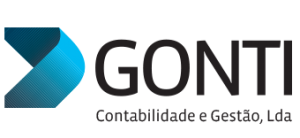SNC-AP: What has changed and what to consider?
The Accounting Standardization System for Public Administrations – SNC-AP – is the accounting model to which all entities with public participation must ensure compliance.
In 2015, the foundations for the Public Accounting Reform were laid through Decree-Law No. 192/2015, which established an Accounting Standardization System for Public Administrations – the SNC-AP.
This standardization of the accounting model and financial reporting for public entities, based on the International Public Sector Accounting Standards (IPSAS), implies a profound transformation in the accounting processes of public entities. They will abandon the accounting systems used until then and adopt a common system for all entities, regardless of their subsector of operation: the SNC-AP.
What is SNC-AP?
Single accounting framework for all Public Administrations
The Accounting Standardization System for Public Administrations (SNC-AP) establishes a set of 27 Public Accounting Standards (NCP) applicable to Public Administrations.
The SNC-AP put an end to the POCP and sectoral plans.
This decree, prepared by the Accounting Standardization Committee, establishes the foundations for the reform of Public Finances, alongside other subsequently approved legal instruments, as it repeals the Official Plan of Public Accounting (POCP) and its respective sectoral plans:
- Official Accounting Plan for the Ministry of Health | POCMS
- Official Public Accounting Plan for the Education Sector | POC-Education
- Official Accounting Plan for Local Authorities | POCAL
- Official Accounting Plan for Public Institutions in the Solidarity and Social Security System | POCISSSS
Harmonization with international public accounting standards
The SNC-AP is aligned with the international public accounting standards issued by the International Public Sector Accounting Standards Board (IPSASB), as well as with the accounting standards used by the European Commission.
4 key points of SNC-AP to remember:
- The SNC-AP includes subsystems of budgetary accounting, financial accounting, and management accounting.
- Set of 27 Public Accounting Standards.
- Detailed Chart of Accounts for budget reporting, financial reporting, and statistical reporting.
- Harmonized templates for presenting financial statements and budget reporting.
Why this change?
Embracing all entities of Public Administrations within a unified accounting framework is a crucial step towards transparency in the management of public funds and a decisive milestone towards achieving the long-awaited presentation of consolidated financial statements of the State.
The absence of financial information or, on the other hand, the presence of inappropriate, insufficient, or even incomparable financial information inevitably led to an unrealistic view and a lack of true performance control of these entities.
The implementation of a standardized accounting system aimed precisely to promote harmonization of public accounting models across all entities, leading to transparency and comparability of results universally.
What changed with the SNC-AP regulations?
With the entry into force of the SNC-AP, the accounting practices of these entities are guided by a set of 27 Public Accounting Standards that introduce new concepts and govern public accounting practices.
Here are some of the changes:
- Implementation of a single accounting framework in Public Administration, harmonizing accounting practices.
- Significant improvement in the quality of budgetary and financial information.
- The State becomes the Reporting Entity, responsible for reporting individual and consolidated budgetary and financial statements.
- Increased production of budgetary and financial performance indicators based on management accounting.
- Simplified procedures and enhanced reliability in the consolidation of accounts.
Public Accounting Standards
The Public Accounting Standards, developed based on the International Public Sector Accounting Standards (IPSAS), establish new rules for the accounting treatment of the following areas:
Reporting
New model and content for presenting financial, budgetary, and management reporting.
Non-current assets
Standards related to non-current assets, such as tangible and intangible assets, leases, investment properties, and impairment of cash-generating assets.
Transactions
Standards related to typical transactions of public entities, such as inventories, revenue from exchange transactions (sales, etc.), financial instruments, provisions, and employee benefits.
Consolidation of controlled entities
Standards related to the consolidation of controlled entities, investments in associates, and other investments.
Assets
Standards regarding historical heritage, assets of the public domain and infrastructure, concessions (from the grantor’s perspective), revenue without consideration, and impairment of non-cash generating assets.
Financial statements
Model of financial statements and budgetary reporting aimed at harmonizing procedures and future consolidation of public accounts.
